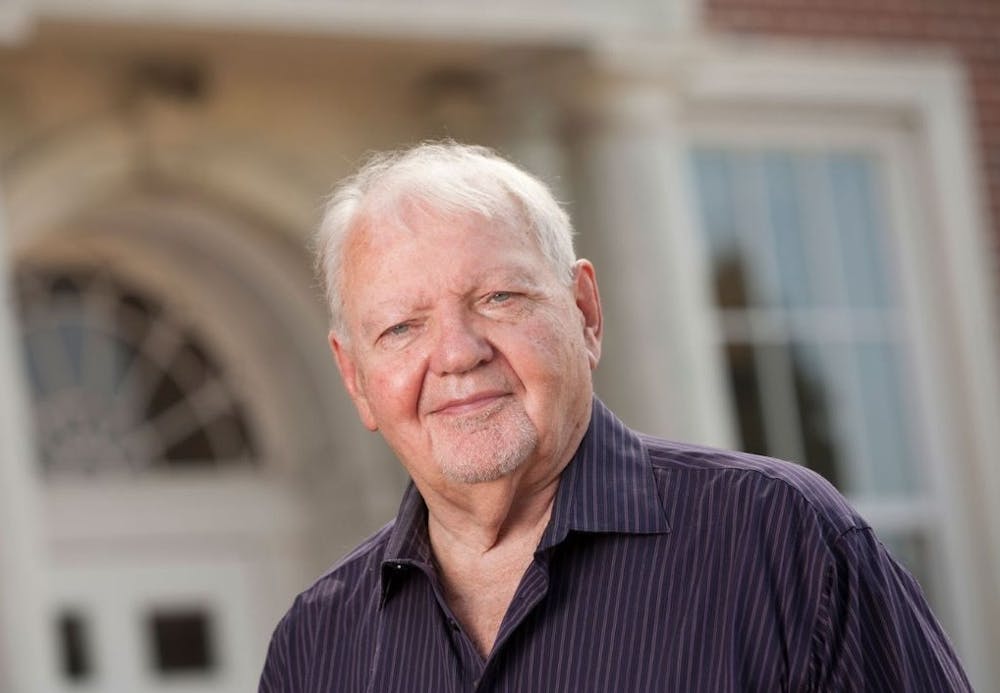Fredric Jameson, professor of romance studies, Knut Schmidt Nielsen distinguished professor of comparative literature and director of the Institute for Critical Theory, is remembered for his revitalization of Marxist perspectives in literary theory and for forging new ways to conceptualize postmodernism.
Known as one of the most influential cultural theorists and literary critics of his time, Jameson died at age 90 on Sept. 22 at his home in Killingworth, Connecticut. His cause of death has not been publicized.
Jameson arrived at Duke in 1985, where he rejuvenated and directed the literature program for 18 years. Under his scholarship, which centered around comparative literature and Marxist theory, the University’s literature program was propelled to national and international recognition.
“He rightly understood the seismic changes happening in the study of literature,” said Rey Chow, Andrew W. Mellon distinguished professor in the humanities and Jameson’s former colleague. “And so he really set up a literature department that was not like the usual or conventional comparative literature program.”
Instead of solely focusing on the classics, Jameson’s interdisciplinary approach emphasized applying ideas to a diversity of cultural subjects from film and music to science fiction.
According to Toril Moi, James B. Duke distinguished professor of literature, Jameson made the literature program an “incredibly unique place” of which “nothing like it existed.”
“Fred created the literature program in his own image, and that means that it had a very capacious, broad vision of what an intellectual should be doing in our day,” Moi said. “The commitment was that we should think historically and theoretically about culture.”
During his tenure as director of the literature program at Duke, Jameson hired well-known faculty with a wide range of academic focuses, solidifying the University’s reputation as an intellectual hub for the humanities.
Chow gave credit to Jameson for his “very conceptual innovation” of literature, which culminated in a literature department that spans across disciplines including film, psychoanalysis, architecture, women’s studies, ethnic studies and Marxism.
“One thing that’s really distinctive and appealing about him is his seemingly infinite intellectual curiosity to both be interested and know about almost anything that you were reading,” said Michael Hardt, professor of literature and interim chair of the department, with Moi echoing his sentiment. “He seemed to love all of it.”
Jameson, who graduated with a Ph.D. in literature from Yale University in 1959, was one of the leading scholars in French, German and Marxist theory in the United States. He published more than 30 books and collections over the course of his career.
Jameson’s 1989 book “Postmodernism, or, The Cultural Logic of Late Capitalism,” which became the best-selling Duke Press book in history, earned him the James Russell Lowell Prize in 1990. In 2011, he was awarded the MLA Lifetime Achievement Award for his prolific body of work.
Before coming to Duke, Jameson taught at Harvard University, Yale University, the University of California, San Diego and the University of California, Santa Cruz, where his enthusiasm translated into a positive impact on his students.
“In the last few days, I’ve been getting just innumerable emails from former students saying how transformative it was for them to have been in his classes, or even recounting to me what he wrote on their first paper and how generous he was,” Hardt said.
He further described Jameson’s passion for a diversity of topics as “totally real and authentic,” with a curiosity for the thoughts of every student. To Hardt, this was part of why students were “so attached” to Jameson.
“He’s that larger-than-life figure,” Chow said. “I think that was why everyone respected him and adored him and admired him for the ongoing project that he made of the literature program itself.”
Jameson was still teaching and writing at the time of his death, as well as planning on publishing two new books this year: “Mimesis, Expression, Construction” and “Inventions of a Present: The Novel in its Crisis of Globalization.”
“He’s left for us a really rich and incomparable legacy of his erudition in his many, many, many publications, so I really think his work will live on,” Chow said. “We will miss him terribly, but he will be with us forever.”
Get The Chronicle straight to your inbox
Signup for our weekly newsletter. Cancel at any time.
Kate Haver is a Trinity sophomore and a university news editor of The Chronicle's 120th volume.

